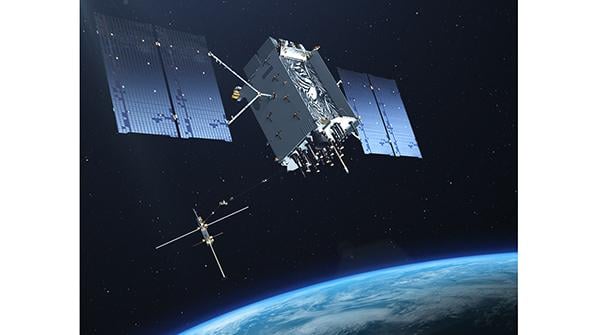Opinion: Ligado Is LightSquared Fiasco 2.0

In a recent AW&ST viewpoint, former NASA Administrator Dan Goldin argued in defense of the FCC’s flawed decision to allow high-power terrestrial transmitters in the quiet band of frequencies that includes GPS (AW&ST July 13-26, p. 74). Sadly, Goldin missed the whole point of the intense outcry against the FCC’s grave error: The FCC has failed to protect GPS, an incredibly valuable national treasure. The commission’s ruling benefits investors in one company but would do irreparable harm to millions of American GPS users. This is a sad replay of Ligado’s previous incarnation, LightSquared.
Extensive U.S. Transportation Department testing demonstrated that virtually all civil GPS applications would be threatened, not only by the new 10-watt transmitters located on every other street corner, but potentially by millions of Ligado’s mobile devices. Both segments raise the GPS signal noise floor.
Their transmitters would be 2 billion times more powerful than the GPS signals for a GPS user—equivalent to trying to hear a whisper with 100 jets taking off. Of particular concern is the impact on aviation (including UAVs, helicopters, automatic dependent surveillance-broadcast, terrain avoidance and warning systems and commercial aircraft communications/air traffic control). This degradation could markedly increase the risk of midair collisions and controlled flight into terrain.
GPS has been called “the jewel of the U.S. space program.” In 2010, GPS won the International Astronautical Federation’s 60th Anniversary Award as the space system that has most benefited humanity. According to a June 2019 study commissioned by the National Institute of Standards and Technology, the commercialization of GPS technology has delivered more than $1.4 trillion in U.S. economic impact.
GPS has stealthily crept into every corner of our society, from agriculture to banking to emergency responders. The Department of Homeland Security has said that all elements of our critical infrastructure are dependent on it. These myriad applications are in jeopardy.
Opposition to the FCC order is widespread and consistent. The U.S. Position, Navigation and Timing Advisory Board has strongly opposed the FCC ruling, based on scientific testing and analysis. Dozens of user groups have opposed the decision, including aviation associations—pilots and manufacturers plus airline and helicopter operators. Nine key U.S. departments have unanimously gone on record as opposed. The FAA and the National Telecommunications and Information Administration have added their strong opposition. Goldin elected to ignore all this.
The company granted this license, Ligado, has claimed support by the major GPS equipment manufacturers. The list of GPS manufacturers, companies and user groups that oppose the FCC decision is at nearly 100 and growing by the day. This was also ignored by Goldin.
Nothing in the FCC authorization for Ligado includes an ironclad requirement to limit noise floor increases to 1 dB or less. This is the most critical error. One decibel is the internationally accepted standard for interference to positioning systems. It requires that the adjacent band should limit noise increases to 25%. Stronger interference threatens GPS performance.
Ligado’s proposal clearly fails this test, particularly for the highest-performance GPS applications. So the company and its backers have invented a new, ill-defined metric that has no support from the GPS users who are most affected—while ignoring the best available science provided by several departments of the U.S. government. Without hearings or consulting those affected, the FCC has apparently accepted this invention but has not clearly explained what it is.
This decision shatters the precedent of allocating only quiet space-to-ground signals in this Mobile Satellite Service band to avoid any risks of cross-interference. Moreover, it violates an explicit promise by the FCC in 2003: “We do not intend, nor will we permit, the terrestrial component to become a stand-alone service.” GPS equipment was manufactured assuming the FCC would keep its word.
Goldin has sounded a false alarm in saying that if this decision is rescinded, the whole U.S. posture on 5G will be in jeopardy—particularly with respect to China. Facts make that assertion doubtful. The lower band of Ligado frequencies in question is only 10 MHz and was never in the FCC plan for 5G. It is an almost negligible part (less than 3%) of the 350 MHz that is in the FCC plan.
The GPS Innovation Alliance performed a comprehensive review of the order and sent it to the Senate Commerce, Science and Transportation Committee.
It is time for Congress to ensure that we do not place a major foundation of our critical infrastructure at risk. For the United States, the value of this repurposing is extremely small, and the potential damage is very great.
Adm. Thad Allen retired as commandant of the U.S. Coast Guard. Professor Brad Parkinson led the original design, development and testing of GPS. Capt. Chesley “Sully” Sullenberger is a former Air Force fighter pilot and retired airline pilot. The opinions expressed by the authors are their own and do not represent the U.S. government, Aviation Week Network or any other entity.




